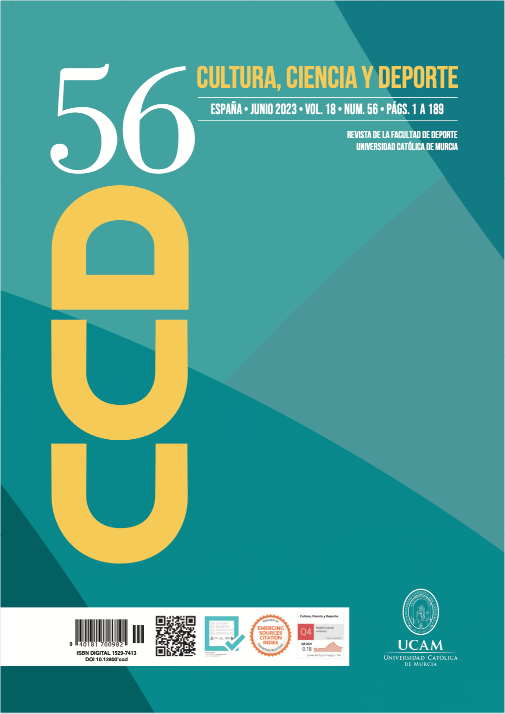Autonomy at work as a predictor of hardy personality and motivation in sport facilitators
DOI:
https://doi.org/10.12800/ccd.v18i56.1975Resumen
This paper studies the predictive capacity of autonomy at work and the hardy personality of sports professionals
on their motivation-effort. The sample is made up of 112 sports facilitators from Extremadura. The Occupational
Resilience Questionnaire and the Multidimensional Organisational Climate Scale are used. The results show that the autonomy factor does not correlate equally strongly with the different components of the hardy personality. Thus, the level of strength in the relationship is as follows: control (β = .49) and challenge (β = .32) and commitment (β
= .04). However, the latter factor, commitment, is the strongest predictor of motivation and effort (β = .69).
The coefficient of determination (R2 = .54) indicates that autonomy and hardy personality predict 54% of
the variance of engagement. And with respect to the autonomy-hardy personality-motivation and effort
model, its level of prediction is 24% (R2 = .24). Finally, it should be noted that the autonomy variable offers its
strongest predictive influence on motivation and effort, when it does so through the control and commitment
factor of the resistant personality. It is concluded that autonomy does not equally influence hardy personality
and thus motivation and effort.
Descargas
Publicado
Cómo citar
Número
Sección
Licencia
Derechos de autor 2023 Creative Commons Attribution License

Esta obra está bajo una licencia internacional Creative Commons Atribución-NoComercial-CompartirIgual 4.0.
Los autores que publican en esta revista están de acuerdo con los siguientes términos:- Los autores conservan los derechos de autor y garantizan a la revista el derecho de ser la primera publicación del trabajo al igual que licenciado bajo una Creative Commons Attribution License que permite a otros compartir el trabajo con un reconocimiento de la autoría del trabajo y la publicación inicial en esta revista.













